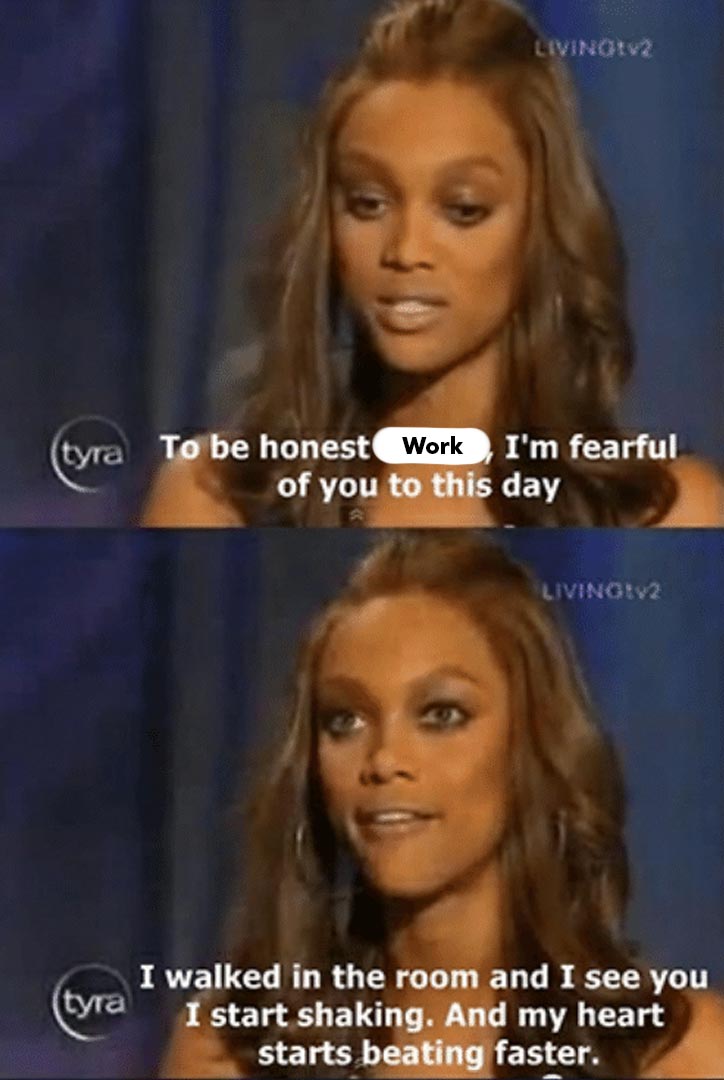If you’re looking for a sign, we’ve got five. Don’t let the pandemic be the only reason for you to stay in a job you don’t like.
Related: This Studio Is Where All The Big Shot Creatives Get Their Work Done
So, you’re thinking of quitting your job in the middle of a pandemic? I mean you wouldn’t be here out of mere curiosity, right? There’s a part of you that’s seriously thinking about it. No shame in that. I was in the exact same spot as you six months ago. During that time, Manila was on lockdown (ECQ levels) and I was working in a job I hated. Literally, I had moments where I’d cry for a bit and then get back to work. You’d think I was going crazy. Despite all of that, I was still skeptical about leaving, which to me now sounds even crazier.
That’s because in a way we wear rose-colored glasses not only for our relationships, but also for our careers. We let ourselves be victimized by companies that abuse the casualties brought by the pandemic. Except today, we’re saying a big fat no to all of that. If you’re experiencing any of these five signs, then it’s time to do the unthinkable: quit your job in the middle of a global crisis.

1. Your official work hours are unclear
Since most of us have moved towards a work from home set-up, the lines between work and rest are often blurred. To top it off, it has not been cleared by your immediate superior what your official work hours are. It may even be worse, wherein your boss will say, “Your job doesn’t sleep.” They’ve invented clocking in for a reason. If the company you’re working for can’t pay you for over time, they should at least acknowledge it.

In my new workplace (this publication you’re reading), we’re required to clock in our hours to track our performance. One time, my colleague asked me, “How did you clock your overtime for our shoot last time?” To which I replied, “We clock overtime? Sorry, I’ve never done that before. We didn’t have that where I used to work.” Imagine that.
2. Your salary is mysteriously decreasing
This one is a pandemic hoot. I’ll give you a scenario. In a span of three months, your salary has been decreasing by ₱1000 per month due to setbacks by the pandemic. Except, that’s not the problem.

Cutbacks on salary really happen during a global economic crisis, so you shouldn’t be upset about that. The problem is you only find out about it when you’re withdrawing your hard earned cash. No warning, no nothing. This leads us to the third sign:
3. There are no memos
No memos mean: no health checks, no salary decrease documents, no COVID-19 work permits, no alignment meetings within the entire company, and everything else in between. Culture in a workplace is so important. You need to be working in a company that at least pretends to care about their employees. If they’re letting you work over time during a pandemic without giving you a little pep talk or a goal insight, then you should seriously rethink about your value in the company.

A step forward in this discussion is no contracts. Oh dear reader, if your employer has not provided you with a decent contract, then something is terribly wrong. That contract protects both you and your employer from overstepping any work boundaries in the office.
4. What benefits?
Here’s a funny little story. When I had to move my benefits (SSS, PhilHealth, Pag-Ibig, and the like) to my new employer, I curiously asked the SSS lady if there was any money in my account. She said it was empty. Now that I’ve been working for a company that actually provides me benefits, I get a text message from SSS updating me on my account balance. Who would’ve thought? Also, if the benefits have not been made clear from the start, chances are you’re not getting any.

Another thing to note is reimbursements. Companies that promise to reimburse you for necessities you’ve spent on for their behalf, but never do should be made accountable.
5. You’re doing a ten man job
I just want to be clear. There is a difference between being given a department worth’s job description and being proactive in the office. The only way to tell is through the communication style. If your immediate superior acknowledges it isn’t your job but is asking for a favor, then you’re still in safe waters. On the other hand, if your immediate superior is making you feel lesser than because you can’t do all the work being given to you, then you gotta jump off that sinking boat.
Related: How Do You Deal With Work If It’s Already Affecting Your Mental Health?

Take these five signs as you will. They were my deciding factors for leaving, and it was the best decision I’ve ever made. I am now working in a company that I love. We may have a few problems here and there, but what company doesn’t?
As you can see, the indicators I’ve written down are pretty serious, because they should be if you’re leaving a job during an unstable time. If there was a small fuss up that went down at work, then it’s probably best to work it out and stay there. Put your introspection to the test and make the right decision.







